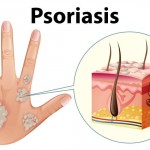Asthma
Asthma is a chronic disease characterized by recurrent attacks of breathlessness and wheezing. During an asthma attack, the lining of the bronchial tubes swells, causing the airways to narrow and thus reducing the flow of air into and out of the lungs. The causes of asthma are not completely understood. However, risk factors for developing asthma include inhaling asthma “triggers”, such as allergens, tobacco smoke and chemical irritants. Asthma cannot be cured, but appropriate management can control the disorder and enable people to enjoy a good quality of life.
Symptoms
Asthma is characterized by:
1) Recurrent episodes of wheezing
2) Shortness of breath
3) Chest tightness
4) Coughing
Sputum may be produced from the lung due to coughing. Symptoms are generally worse at night and in the early morning or in response to allergens.
A number of other health conditions are found associated with asthma including:
• Gastro-Esophageal reflux disease (GERD)
• Rhinosinusitis
• Obstructive sleep apnea
Causes
The exact cause of asthma is yet not known. But there are certain risk factors that are associated with asthma
Some of the factors include:
• An inherited tendency to develop allergies, called atopy (AT-o-pe).
• Parents who have asthma (heredity).
• Allergens from dust, animal fur, cockroaches, mold, and pollens from trees, grasses, and flowers etc.
• Irritants such as cigarette smoke, air pollution, chemicals or dust in the workplace and sprays (such as hair spray).
• Medicines such as aspirin or other non steroidal anti-inflammatory drugs and nonselective beta-blockers.
• Sulfites in foods and drinks
• Viral upper respiratory infections, such as colds
• Physical activity, including exercise
• Contact with some airborne allergens or exposure to some viral infections in infancy or in early childhood when the immune system is developing.
Diagnosis
Medical History Doctor also may ask:
• About one's medical history, including information about allergies, asthma, or other medical conditions.
• If one had heartburn or a sour taste in the mouth. These may be signs of gastro esophageal reflux disease (GERD).
• If had cold or the flu.
• If one smoke or spend time around others who smoke.
Physical Exam To check for signs of problems related to cough, your doctor will use a stethoscope to listen to your lungs. He or she will listen for wheezing (a whistling or squeaky sound when you breathe) or other abnormal sounds. Other tests may include:
• An exam of the mucus from your nose or throat. This test can show whether one have a bacterial infection.
• Chest x ray takes a picture of heart and lungs. This test can help diagnose conditions such as pneumonia and lung cancer.
• Lung function tests: These tests measure how much air you can breathe in and out, how fast you can breathe air out, and how well your lungs deliver oxygen to your blood. Lung function tests can help diagnose asthma and other conditions.
• An x ray of the sinuses: This test can help diagnose a sinus infection.
Treatments
Medications: Medicines in asthma is generally given through inhalers. Inhaling a drug is an effective way of taking an asthma medicine as it goes straight to the lungs, with very little ending up elsewhere in the body.
Reliever inhaler: The inhaler usually contains a short-acting beta 2-agonist. It works by relaxing the muscles surrounding the narrowed airways. Examples of reliever medicines include salbutamol and terbutaline.
Preventer inhaler: It works to reduce the amount of inflammation and ‘twitchiness’ in the airways and prevent asthma attacks occurring. Examples of preventer inhalers are beclometasone, budesonide, fluticasone and mometasone.
Complications
• Symptoms that interfere with sleep, work or recreational activities
• Permanent narrowing of the bronchial tubes (airway remodeling) that affects how well you can breathe
• Sick days from work or school during asthma flare-ups
• Side effects from long-term use of some medications used to stabilize severe asthma
References:
CDC
National Heart Lungs and Blood Institute
U S National Library of Science
NHS








